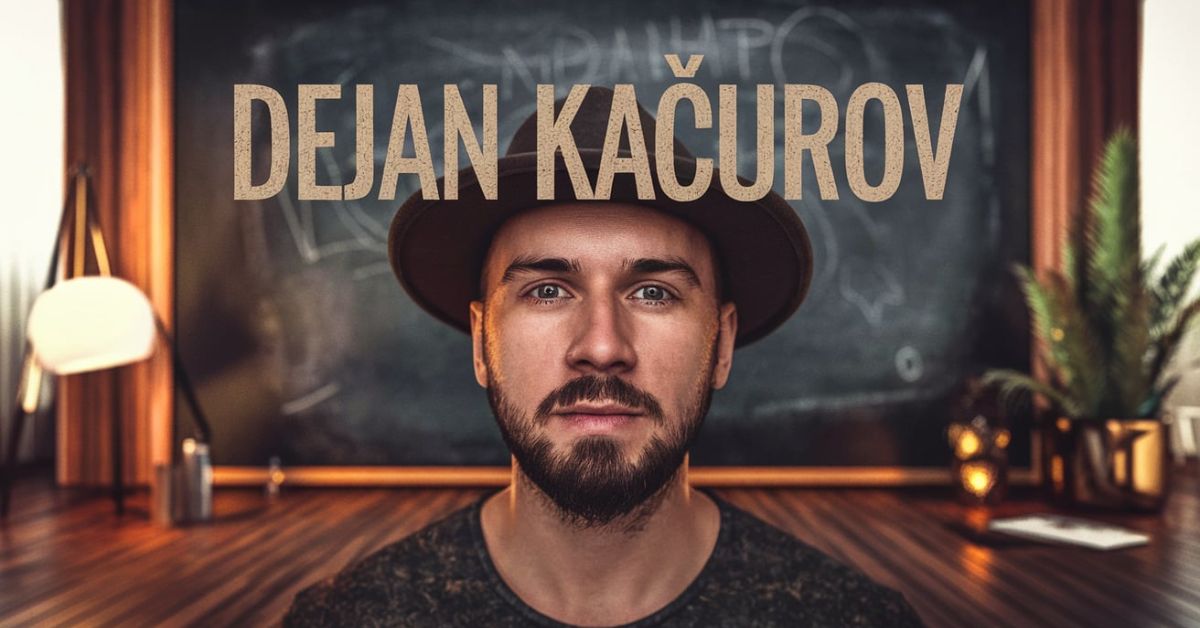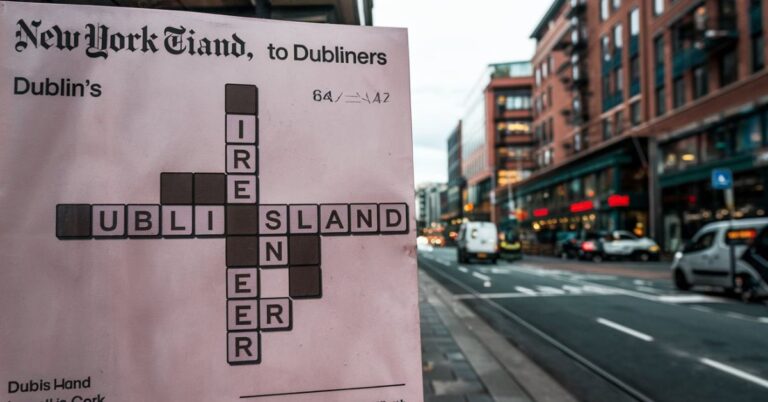A Comprehensive Overview of “Dejan Kacurov”: Uncovering the Identity, Impact, and Legacy
The name “Dejan Kacurov” may not be immediately familiar to many, but it carries a variety of associations depending on the region, language, and context. A common name in Eastern European communities, particularly in countries like North Macedonia, Serbia, and Ukraine, “Dejan Kacurov” is shared by several individuals across different spheres of life. Despite the lack of widespread fame, the name is tied to a rich cultural heritage, and various people with the name have contributed to their communities in different ways.
This article seeks to go beyond the basic details of Dejan Kacurov and explore not only who he might be but also the potential connections, interpretations, and analyses surrounding his name. By examining the different people who carry the name, we can uncover stories, social influences, and even potential links between them, shedding light on the diversity of this seemingly simple name.
Dejan Kacurov in Kocani, North Macedonia
One notable individual by the name of Dejan Kacurov hails from Kocani, a town in North Macedonia known for its rich cultural heritage. In Kocani, the name Kacurov is relatively well-known, and it carries an air of respect among the locals. The town is known for its agricultural background, especially the cultivation of rice and tobacco, but it also holds a reputation for being a hub of Macedonian traditions.
Dejan Kacurov of Kocani might not be a household name across the globe, but within the region, his influence could be seen in various ways, from local business leadership to cultural engagement. Kocani is a tight-knit community, where familial ties and local involvement often define the social structure. People bearing the name Kacurov in this region may hold significant roles in local businesses, education, or social development.
Key Insights:
- Dejan Kacurov from Kocani might be involved in business or cultural organizations.
- Local names like Kacurov often come with a sense of history, with generations of families contributing to community development.
- Macedonian heritage plays a key role in shaping the legacy of individuals like Dejan.
Dejan Kacurov in Mukacheve, Ukraine
Another variation of the name Dejan Kacurov can be found in Mukacheve, Ukraine. Mukacheve is a city with a complex history, situated in the Zakarpattia region, which has seen diverse influences from various empires and ethnic groups over the centuries. The city’s strategic location near Hungary, Slovakia, and Romania has made it a melting pot of cultures, which is reflected in its population.
For the Dejan Kacurov living in Mukacheve, their name may hold different meanings, potentially linked to the city’s diverse heritage. It’s not uncommon for people living in multiethnic regions like Mukacheve to bear names that represent different cultural traditions, including Slavic, Hungarian, and Ukrainian roots. People like Dejan Kacurov in Mukacheve could be contributing to the local economy, possibly in fields like trade, education, or the arts.
Key Insights:
- The influence of Eastern European diversity plays a role in shaping the identity of individuals like Dejan Kacurov in Mukacheve.
- People with the name Kacurov in this area could be active in bridging different cultural and ethnic divides.
- Ukraine’s rich history and diverse population likely shape the social and economic contributions of those with such names.
The Connection to “Valya Kachur Deyman” in Mukacheve
In the same city of Mukacheve, a person named “Valya Kachur Deyman” is linked to the name “Dejan Kacurov,” suggesting either a cultural connection or a familial bond. The name “Valya” is a common diminutive for “Valentina” in Slavic cultures, and “Kachur” could be a derivative of Ukrainian or Russian surnames.
The presence of “Deyman” as part of the name could be an indication of how names evolve across generations and geographic locations. The blending of Slavic roots with Hungarian, Romanian, or even Ukrainian influences in this region showcases the dynamic nature of cultural identity.
Key Insights:
- The connection between “Valya Kachur Deyman” and “Dejan Kacurov” highlights the interwoven cultural histories of Eastern European communities.
- Names evolve in multiethnic regions, creating new hybrid identities that reflect their rich social and political past.
Dejan Kacurov in Perlez, Serbia
The name “Dejan Kacurov” is also associated with people living in Perlez, a town in the Vojvodina region of Serbia. Vojvodina is a province known for its ethnic diversity, with a population consisting of Serbs, Hungarians, Croats, and other groups. The presence of a “Dejan Kacurov” in this region points to yet another cultural influence that shapes the legacy of this name.
In Serbia, Dejan Kacurov might be involved in various sectors such as agriculture, education, or local politics. Given the region’s agricultural significance, many individuals from this area, like those with the name Kacurov, might find themselves working in farming or regional development.
Key Insights:
- People from Perlez, including those with the name Kacurov, likely contribute to Serbia’s agricultural economy and cultural development.
- Ethnic diversity in Vojvodina influences the way individuals and families interact, especially those with common names like Kacurov.
Broader Cultural Significance of the Name “Dejan Kacurov”
While the name Dejan Kacurov might seem relatively common, its cultural significance is profound. In Slavic communities, names often carry historical and familial meanings, passed down through generations. Each region where the name appears may add its own layer of history, reflecting the local traditions, language, and even political events that have shaped the region.
Whether it’s in Kocani, Mukacheve, or Perlez, people named Dejan Kacurov contribute to the cultural, economic, and social fabric of their communities. Understanding the role of such names in different areas highlights the diversity of Eastern European heritage and the importance of names in preserving cultural identity.
Key Insights:
- The name Dejan Kacurov represents more than just an individual; it signifies the cultural and historical narratives of various Eastern European regions.
- Names in Slavic and Eastern European cultures are often passed down to preserve familial identity and to honor cultural traditions.
Related FAQs
1. What does the name “Dejan Kacurov” mean?
The name “Dejan” is a popular Slavic name that means “to serve” or “one who serves.” “Kacurov” is a surname that likely originates from the Macedonian or broader Slavic regions, and it is often associated with people from towns or villages with rich agricultural backgrounds.
2. Is Dejan Kacurov a common name?
Yes, the name “Dejan Kacurov” is not rare, especially in countries like North Macedonia, Ukraine, and Serbia. It is a fairly typical Slavic surname and may be found in various regions across Eastern Europe, each with different regional and cultural connotations.
3. What influence does the name “Dejan Kacurov” have in the local communities?
In regions like Kocani, Mukacheve, and Perlez, people named “Dejan Kacurov” are often connected to local business, education, and community development. The influence of the name often ties back to the agricultural, educational, or political landscape of the area.
4. How can the name “Dejan Kacurov” be connected to historical figures or events?
Given the widespread nature of the name across Eastern Europe, it is likely tied to various historical events that shaped these regions. For instance, the tumultuous history of the Balkans and Eastern Europe in the 20th century may have played a role in shaping the stories of individuals named Dejan Kacurov.
Conclusion
The name “Dejan Kacurov” is a multifaceted and culturally rich moniker, representing a blend of Eastern European heritage. While individuals with this name may lead relatively quiet lives, their impact on local communities and their connection to historical and social movements should not be overlooked. Understanding the depth of such names can reveal important cultural insights and provide a richer appreciation of the interconnectedness of European societies. Whether in North Macedonia, Ukraine, or Serbia, the name “Dejan Kacurov” carries with it a piece of the past, present, and future of Eastern Europe.







